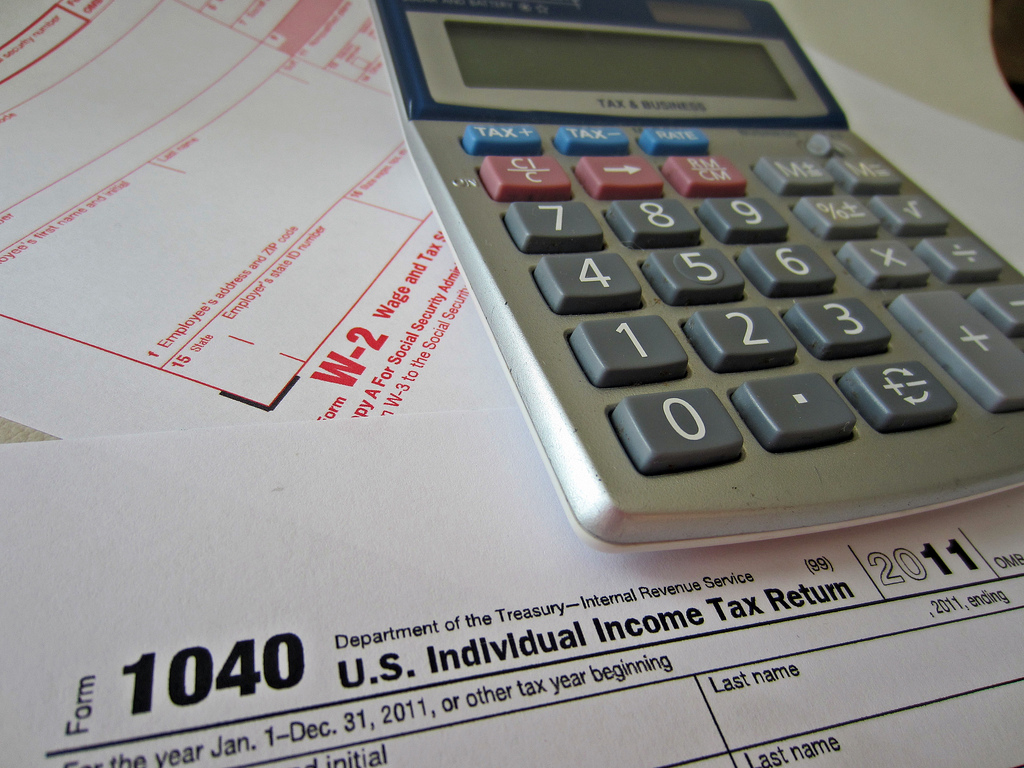
03 Dec What expenses can I deduct for a side business?
Photo: 401kcalculator.orgQ. I have a full-time job, but I’m thinking of starting a side business. What kinds of expenses can I deduct from my taxes? And if the business isn’t making money yet, will the IRS be suspicious?
A. You’re smart to ask. No one wants the IRS to come knocking on the door.
You should take deductions that are rightfully yours, but don’t fudge. Be honest.
The first place to look to identify deductible expenses for a business is on the IRS Schedule C (Profit or Loss from Business), said Diahann Lassus, a certified financial planner and certified public accountant with Lassus Wherley in New Providence.
“The form details many of the expenses you can claim for deduction such as office expenses, advertising for your business, rent or lease payments, and more,” she said. “You can also reference a complete list on the irs.gov web site where they have a small business and self-employed tax center.”
Lassus said business expenses are usually deductible if the business is operated for a profit.
Starting a side business can be productive and fun, she said, if you do your homework around the business including the tax rules that may apply once you become a business owner.
“In order for your business expenses to be deductible, the expenses must be ordinary, necessary, and reasonable,” she said. “This means that the expenses have to be appropriate and help you run the business in a productive way with the objective of earning income.”
She said if your business incurs losses for many years, the IRS may question whether you are operating it to make a profit or if you actually have a hobby.
If you are starting a business on the side you need to pay close attention to Internal Revenue Code Section 183 known as the “hobby loss rule.”
The IRS web site provides a fact sheet that lists some of the factors it would consider, such as the time and effort put into the activity and whether or not you have the knowledge needed to be successful in that type of business.
The business is presumed to be for profit if it makes a profit in at least three of the last five tax years, but this may vary depending on the type of business, Lassus said.
“As long as you can demonstrate that the business activity was intended to earn a profit, the losses from the business are fully deductible,” she said. “If your business is classified as a hobby, allowable deductions cannot exceed the income for the activity so you can’t use any losses to offset other types of income.”
There are many other questions that would need to be answered as you consider starting a business, including the location of the business.
In the event that you will be conducting your business in a home office, there are other rules to consider, Lassus said.
“The IRS does not allow a deduction for an office in the home unless it is used exclusively on a regular basis as the principle place of business to conduct administrative or management activities and that there is no other fixed location where you conduct these business activities,” she said.
Further, expenses relevant to the home office are categorized as direct or indirect, and the office expenses must be distinct from personal use in the home.
“For example, if the office is repainted, which is a direct expense, it is deducted in full,” she said. “Indirect expenses are for maintaining and operating the home, because they benefit both the business and personal use.”
With indirect expenses, an allocation is made by calculating what percentage of your home area is used for your business to come up with the total deduction, she said. To claim the home office deductions, use Form 8829 (Expenses for Business Use of Your Home).
Email your questions to .
This story was first posted in December 2014.
NJMoneyHelp.com presents certain general financial planning principles and advice, but should never be viewed as a substitute for obtaining advice from a personal professional advisor who understands your unique individual circumstances.
